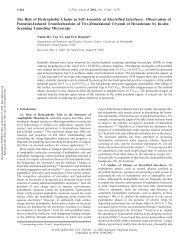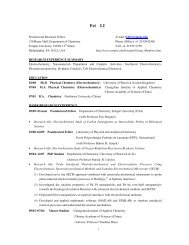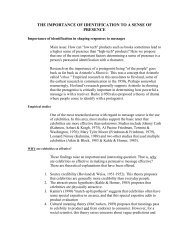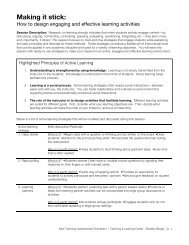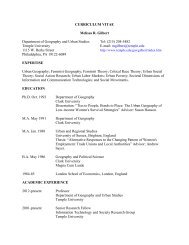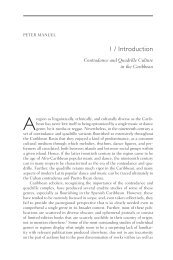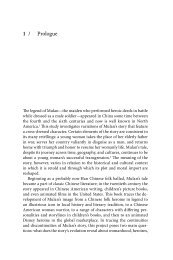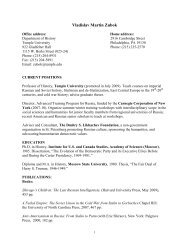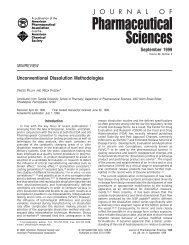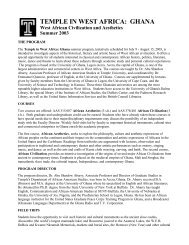This Country Must Change: Essays on the ... - Temple University
This Country Must Change: Essays on the ... - Temple University
This Country Must Change: Essays on the ... - Temple University
You also want an ePaper? Increase the reach of your titles
YUMPU automatically turns print PDFs into web optimized ePapers that Google loves.
Rosebraugh, Craig (c<strong>on</strong>t. ed.). 2009. <str<strong>on</strong>g>This</str<strong>on</strong>g> <str<strong>on</strong>g>Country</str<strong>on</strong>g> <str<strong>on</strong>g>Must</str<strong>on</strong>g> <str<strong>on</strong>g>Change</str<strong>on</strong>g>: <str<strong>on</strong>g>Essays</str<strong>on</strong>g> <strong>on</strong> <strong>the</strong> Necessity of<br />
Revoluti<strong>on</strong> in <strong>the</strong> USA. Arissa Media Group. Portland, Phoenix, Los Angeles. 231 Pages.<br />
$16.95.<br />
<str<strong>on</strong>g>This</str<strong>on</strong>g> <str<strong>on</strong>g>Country</str<strong>on</strong>g> <str<strong>on</strong>g>Must</str<strong>on</strong>g> <str<strong>on</strong>g>Change</str<strong>on</strong>g>: <str<strong>on</strong>g>Essays</str<strong>on</strong>g> <strong>on</strong> <strong>the</strong> Necessity of Revoluti<strong>on</strong> in <strong>the</strong> USA is a<br />
welcome additi<strong>on</strong> to <strong>the</strong> growing amount of literature emerging today that calls for radical<br />
change to <strong>the</strong> world in which we live. Unlike some, <str<strong>on</strong>g>This</str<strong>on</strong>g> <str<strong>on</strong>g>Country</str<strong>on</strong>g> <str<strong>on</strong>g>Must</str<strong>on</strong>g> <str<strong>on</strong>g>Change</str<strong>on</strong>g>, as <strong>the</strong> subtitle<br />
emphasizes, calls not for reformist change from a political administrati<strong>on</strong>, but instead for a truly<br />
radical and revoluti<strong>on</strong>ary change that would implement a new world for all of us.<br />
One of <strong>the</strong> goals of this text is to produce a revoluti<strong>on</strong>ary document that can be read<br />
easily by <strong>the</strong> average American. While many texts in recent years have been released calling for<br />
radical social change, many of <strong>the</strong>se, though brilliant, are more readily accessibly to an academic<br />
audience than to <strong>the</strong> average pers<strong>on</strong> toiling and suffering because of <strong>the</strong> very policies <strong>the</strong> texts<br />
bemoan. <str<strong>on</strong>g>This</str<strong>on</strong>g> <str<strong>on</strong>g>Country</str<strong>on</strong>g> <str<strong>on</strong>g>Must</str<strong>on</strong>g> <str<strong>on</strong>g>Change</str<strong>on</strong>g> is written in c<strong>on</strong>trast to this, emphasizing language choices<br />
and sentence structures that those who are not already indoctrinated into a movement or have not<br />
read <strong>the</strong> tomes of radical literature throughout history could engage with. While many books<br />
start by claiming that <strong>the</strong>y hope <strong>the</strong>ir work will be accessible to a wider audience, many do not<br />
succeed in doing this; this <strong>on</strong>e does.<br />
<str<strong>on</strong>g>This</str<strong>on</strong>g> success may in part emerge out of <strong>the</strong> editor’s choice of asking <strong>on</strong>-<strong>the</strong>-ground<br />
activists ra<strong>the</strong>r than detached academics to write <strong>the</strong> majority of <strong>the</strong> chapters included. In this<br />
way, Rosebraugh and <strong>the</strong> included authors seem to take Marx’s claim that “Philosophers have<br />
<strong>on</strong>ly interpreted <strong>the</strong> world, <strong>the</strong> point is to change it” seriously. The activist-authors included do<br />
an excellent job of interspersing <strong>the</strong>ir pers<strong>on</strong>al experience as activists, and sometimes pris<strong>on</strong>ers,<br />
with historical narratives, evidence of successes, occasi<strong>on</strong>al <strong>the</strong>ory, and calls for fur<strong>the</strong>r acti<strong>on</strong>.
<str<strong>on</strong>g>This</str<strong>on</strong>g> combinati<strong>on</strong> works to produce a praxis-oriented perspective offering <strong>the</strong> necessary tools and<br />
ideas for a new revoluti<strong>on</strong>ary movement.<br />
Though I applaud <strong>the</strong> decisi<strong>on</strong> to write <strong>the</strong> text in this way, it is not unproblematic. For<br />
example, <strong>the</strong> editor seems to have left <strong>the</strong> decisi<strong>on</strong> of whe<strong>the</strong>r or not to include any sort of<br />
references up to <strong>the</strong> authors. <str<strong>on</strong>g>This</str<strong>on</strong>g> is understandable if <strong>on</strong>e’s goals emphasize orati<strong>on</strong> to a general<br />
populace ra<strong>the</strong>r than academic, peer-reviewed writing. However, we also have to remember that<br />
<strong>the</strong> book is being released at a time when <strong>the</strong> general public has not been revoluti<strong>on</strong>ized, yet<br />
have access to more informati<strong>on</strong> than ever before thanks to <strong>the</strong> technology “revoluti<strong>on</strong>” (a word<br />
that, as <strong>the</strong> book points out, we overuse, hence <strong>the</strong> scare quotes). Knowing this,<br />
counterarguments to <strong>the</strong> important claims in this book are readily available. Therefore, <strong>the</strong><br />
average reader, if <strong>the</strong>y are sympa<strong>the</strong>tic to <strong>the</strong> claims made in <strong>the</strong> text, should be given <strong>the</strong><br />
resources to fur<strong>the</strong>r educate him or herself after having finished this book. Though some chapters<br />
do offer <strong>the</strong>se resources, <strong>the</strong>y should be included for every chapter. <str<strong>on</strong>g>This</str<strong>on</strong>g> is particularly<br />
important c<strong>on</strong>sidering <strong>the</strong> radical claims made in <strong>the</strong> text—because many readers will have spent<br />
<strong>the</strong>ir life being told o<strong>the</strong>r narrati<strong>on</strong>s of history by state educati<strong>on</strong>al apparatuses, having regular<br />
citati<strong>on</strong>s in <strong>the</strong> book would give <strong>the</strong> chapters a level of au<strong>the</strong>nticity and legitimacy that some<br />
readers may think is lacking o<strong>the</strong>rwise.<br />
The more significant problem faced by this book is a general lack of organizati<strong>on</strong>.<br />
Reading <strong>the</strong> book, <strong>the</strong>re are many c<strong>on</strong>necti<strong>on</strong>s between <strong>the</strong> various chapters. For example, a<br />
number of chapters work from an explicitly Marxist perspective. O<strong>the</strong>rs emphasize a need for<br />
animal rights, while o<strong>the</strong>rs still emphasize a broader radical envir<strong>on</strong>mental perspective in <strong>the</strong><br />
spirit of Earth First! and <strong>the</strong> Earth Liberati<strong>on</strong> Fr<strong>on</strong>t. Each of <strong>the</strong>se perspectives has its place in<br />
this book, as each is an important part of any coming revoluti<strong>on</strong> in <strong>the</strong> 21 st Century. However,
<strong>the</strong>se chapters are disc<strong>on</strong>nected in <strong>the</strong> text. Chapters that emphasize radical approaches to<br />
animal rights and / or envir<strong>on</strong>mental justice separate from <strong>on</strong>e ano<strong>the</strong>r chapters specifically<br />
emphasizing a Marxist dialectical class analysis. Fur<strong>the</strong>rmore, <strong>the</strong>re are c<strong>on</strong>tradicti<strong>on</strong>s between<br />
<strong>the</strong>se chapters that a n<strong>on</strong>-revoluti<strong>on</strong>ary audience may feel are problematic. Without drawing <strong>the</strong><br />
existing and important c<strong>on</strong>necti<strong>on</strong>s between various revoluti<strong>on</strong>ary struggles, such as those for<br />
labor rights, animal rights, and reparati<strong>on</strong>s for past atrocities, a reader may be left uncertain<br />
about how a struggle with so many diverse goals can move forward.<br />
An academic audience could easily draw some of <strong>the</strong>se c<strong>on</strong>necti<strong>on</strong>s for <strong>the</strong>mselves.<br />
Having read R<strong>on</strong>al Kuykendall’s chapter “Reificati<strong>on</strong>: An Impediment to Social <str<strong>on</strong>g>Change</str<strong>on</strong>g>,” <strong>the</strong><br />
most <strong>the</strong>oretical chapter in <strong>the</strong> book, <strong>on</strong>e could <strong>the</strong>n better understand Bill Dunne’s “<str<strong>on</strong>g>Change</str<strong>on</strong>g> We<br />
Just Can’t Believe In” or <strong>the</strong> philosophical underpinnings of <strong>the</strong> lack of imaginati<strong>on</strong> in<br />
movements for social change detailed by Rob Los Ricos in “Power to <strong>the</strong> Imaginati<strong>on</strong>!” Jaan<br />
Laaman and Bill Dunne’s chapters both begin with similar analyses claiming that change is<br />
inherent to anything, and that it is often driven by internal c<strong>on</strong>tradicti<strong>on</strong>s, such as those in<br />
capitalism. Placing <strong>the</strong>se chapters toge<strong>the</strong>r, al<strong>on</strong>gside o<strong>the</strong>r Marxist analyses emerging out of<br />
Hegelian Dialectics, would make sense. Similarly, <strong>the</strong> many chapters emphasizing <strong>the</strong> ever<br />
increasing need for envir<strong>on</strong>mental and animal justice could enter into a dialogue with <strong>on</strong>e<br />
ano<strong>the</strong>r by emphasizing <strong>the</strong>ir interc<strong>on</strong>necti<strong>on</strong>s—those that describe well <strong>the</strong> horrors we will face<br />
if we do not deal with our envir<strong>on</strong>mental issues would be great precursors to <strong>the</strong> chapters that<br />
detail successful direct acti<strong>on</strong> campaigns against <strong>the</strong> corporate and government elites who have<br />
created <strong>the</strong>se problems.<br />
Unfortunately, <strong>the</strong> book is not organized in such a way as to promote this understanding.<br />
While <strong>the</strong> chapters do speak to <strong>on</strong>e ano<strong>the</strong>r, <strong>the</strong>ir lack of organizati<strong>on</strong> leaves me w<strong>on</strong>dering if an
audience that is not already involved in social movements or that has not already read radical<br />
literature will draw <strong>the</strong>se c<strong>on</strong>necti<strong>on</strong>s as well as <strong>the</strong>y might if <strong>the</strong> chapters were organized in any<br />
sort of coherent way. Ideally, <strong>the</strong> editor would have not <strong>on</strong>ly organized <strong>the</strong> chapters better, but<br />
could have also included an introductory and c<strong>on</strong>cluding piece to each “secti<strong>on</strong>” that would help<br />
draw <strong>the</strong>se c<strong>on</strong>necti<strong>on</strong>s and helped to fur<strong>the</strong>r develop <strong>the</strong> praxis-oriented approach <strong>the</strong> book<br />
seems to aim for. Especially c<strong>on</strong>sidering <strong>the</strong> books laudable goal of reaching those who “have<br />
yet to become involved but realize something is wr<strong>on</strong>g in this society” (4), which seems to be an<br />
increasing number of disillusi<strong>on</strong>ed Americans, if <strong>the</strong> polls can tell us anything, this kind of<br />
organizati<strong>on</strong> would have been particularly beneficial.<br />
I am also left w<strong>on</strong>dering why <strong>the</strong> book limits its focus to <strong>the</strong> United States of America. It<br />
seems likely that any coming revoluti<strong>on</strong> would have to shift its focus away from <strong>the</strong> isolati<strong>on</strong>ist<br />
principle of any given nati<strong>on</strong>-state (an outdated c<strong>on</strong>cept, if ever <strong>the</strong>re was <strong>on</strong>e) to a global shift<br />
of justice for all. Some chapters in <strong>the</strong> book makes it obvious that past principles of radical<br />
change are outdated in its calls for a revoluti<strong>on</strong> that is not anthropocentric, meaning that some<br />
authors recognize that a new revoluti<strong>on</strong> must be for all and not just for humans, and yet <strong>the</strong><br />
books stated focus is to emphasize <strong>the</strong> necessity for change in <strong>the</strong> USA. Though arguably this is<br />
where change is most necessary due to <strong>the</strong> massive impact of <strong>the</strong> United States <strong>on</strong> <strong>the</strong> rest of <strong>the</strong><br />
world, our now global society needs global change that does not emphasize <strong>the</strong> needs of <strong>on</strong>e<br />
imagined community of arbitrarily selected individuals over ano<strong>the</strong>r. If <strong>the</strong> authors want us to<br />
believe that we should move bey<strong>on</strong>d anthropocentric revoluti<strong>on</strong>ary principles, why not move<br />
past American and Western-centric <strong>on</strong>es as well? The first full chapter in <strong>the</strong> book, Jalil A.<br />
Muntaqim’s “Towards a New Amerikan Revoluti<strong>on</strong>” argues that America cannot be reformed<br />
without revoluti<strong>on</strong>, stating that a new revoluti<strong>on</strong>ary struggle will “depend <strong>on</strong> oppressed peoples
of all nati<strong>on</strong>s and classes” (30), so why should <strong>the</strong> book’s title and emphasis be <strong>on</strong>ly <strong>on</strong> <strong>the</strong> most<br />
hegem<strong>on</strong>ic of <strong>the</strong>se nati<strong>on</strong>s?<br />
That being said, I still encourage any<strong>on</strong>e who recognizes that really revoluti<strong>on</strong>ary change<br />
is necessary, or who simply feels that something is wr<strong>on</strong>g and needs to change, to read this book.<br />
Academics c<strong>on</strong>sidering using this book for a class might c<strong>on</strong>sider reordering <strong>the</strong> chapters <strong>on</strong><br />
<strong>the</strong>ir syllabus in order to encourage <strong>the</strong> kind of c<strong>on</strong>necti<strong>on</strong>s that are not currently promoted.<br />
They should also be prepared to draw c<strong>on</strong>necti<strong>on</strong>s that are not made in <strong>the</strong> book and to teach<br />
aspects of <strong>the</strong> underlying <strong>the</strong>ory that are not detailed in <strong>the</strong> chapters. For example, an<br />
understanding of hegem<strong>on</strong>y as detailed by Gramsci, Althusser, and later Laclau and Mouffe<br />
would help <strong>on</strong>e to better understand certain aspects of <strong>the</strong> text, such as why revoluti<strong>on</strong> has not<br />
yet occurred in <strong>the</strong> United States as well as how historical narratives can be articulated to support<br />
<strong>the</strong> ruling class when <strong>the</strong>y appear to oppose <strong>the</strong>m. Regardless, its easy to understand style would<br />
be useful in any undergraduate classroom. N<strong>on</strong>-academics should be equally willing to read this<br />
book. N<strong>on</strong>-academics will find in this book easy to understand chapters detailing <strong>the</strong> need for<br />
revoluti<strong>on</strong> in such a way that is hard to argue with. I suspect that after reading this book almost<br />
any<strong>on</strong>e would agree that revoluti<strong>on</strong> is necessary. However, both should be prepared to<br />
supplement reading this book with o<strong>the</strong>r informati<strong>on</strong> ga<strong>the</strong>rings in order to properly analyze and<br />
understand <strong>the</strong> chapters present here.<br />
Perhaps this book’s best feature is that all of <strong>the</strong> authors present unrelenting calls for<br />
radical, revoluti<strong>on</strong>ary social change. The book pulls no punches in its proposals and does not<br />
hesitate <strong>on</strong> important issues that might make some readers uncomfortable, such as <strong>the</strong> possibility<br />
of a need for violence in a coming revoluti<strong>on</strong>. <str<strong>on</strong>g>This</str<strong>on</strong>g>, <strong>the</strong>n, leaves <strong>the</strong> reader finishing <strong>the</strong> book<br />
craving <strong>the</strong> know-how to make <strong>the</strong> revoluti<strong>on</strong>ary change that <strong>the</strong> book c<strong>on</strong>vinces us is so
necessary. The book offers some suggesti<strong>on</strong>s, though more importantly <strong>the</strong> authors suggest that<br />
<strong>the</strong> reader find what is most needed and do it <strong>the</strong>mselves ra<strong>the</strong>r than to simply look for o<strong>the</strong>rs, as<br />
<strong>the</strong> authors seem to partially agree that this is what <strong>the</strong> next revoluti<strong>on</strong> will need. Fur<strong>the</strong>rmore,<br />
<strong>the</strong> book c<strong>on</strong>cludes with an e-mail address (usrevoluti<strong>on</strong>arymovement@gmail.com) that <strong>the</strong><br />
reader can c<strong>on</strong>tact in order to get more informati<strong>on</strong>, talk more about <strong>the</strong> issues raised in this<br />
book, or get directly involved. Hopefully, after reading this book, many will decide to take that<br />
latter step.<br />
Ed Avery-Natale is a Ph.D. candidate in <strong>the</strong> Sociology department at <strong>Temple</strong> <strong>University</strong><br />
c<strong>on</strong>ducting research <strong>on</strong> <strong>the</strong> Anarchist-Punk culture in Philadelphia. He can be c<strong>on</strong>tacted at<br />
Edward.Natale@<strong>Temple</strong>.Edu.



